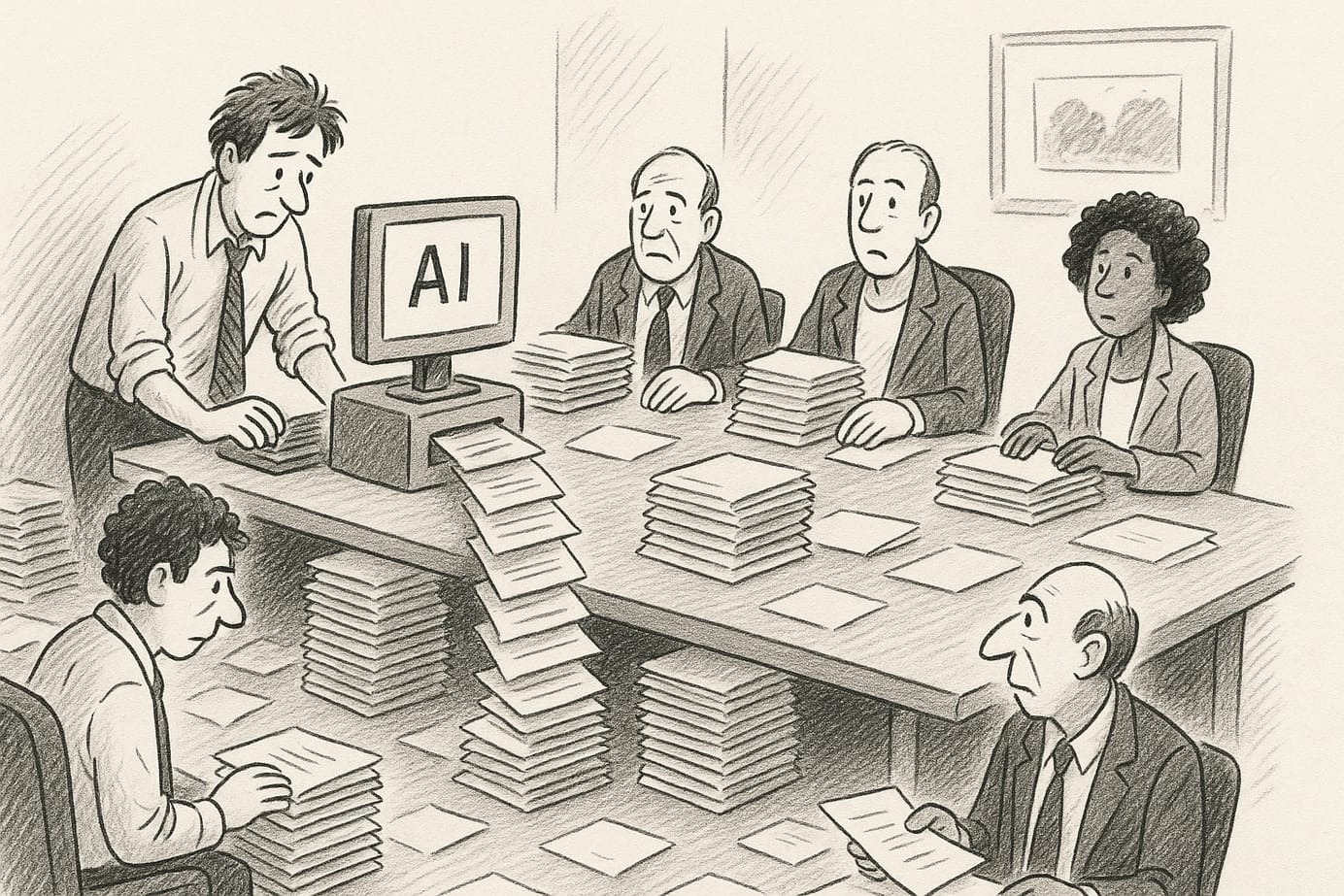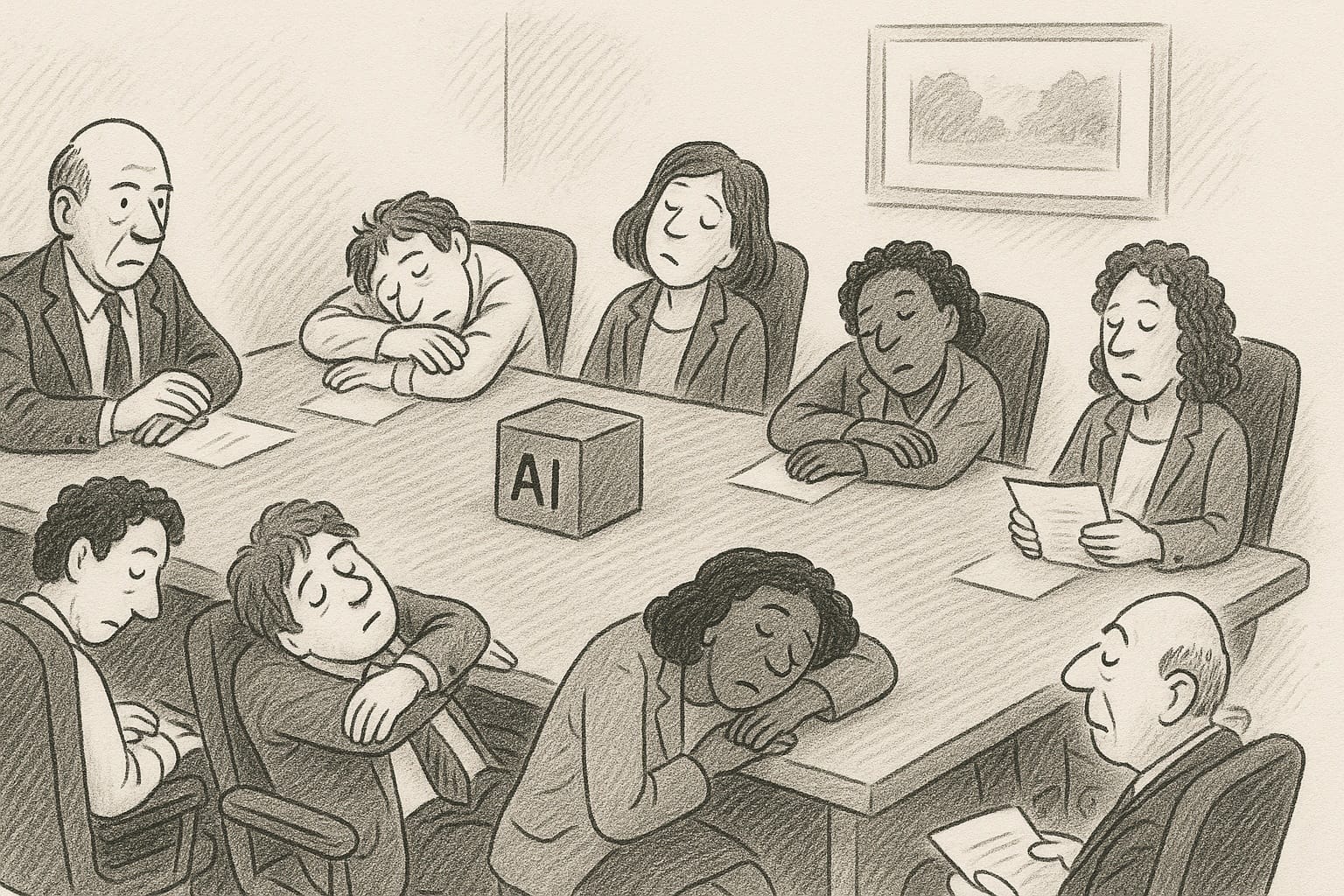
Reverse Compression: How Using GenAI Can Make Organisations Less Efficient
Corporate AI has reached a tipping point, with a majority of organisations now having deployed AI assistants. Some of these have been rolled out as AI tools, others been embedded as features in existing enterprise applications. Vendors in particular have been keen to tout the benefits of this development, exhorting their corporate counterparts to buy more licenses: "Once in a lifetime opportunity .. industrial revolution .. etc." The promise: get the tech—realise the benefit.
Yet, as AI assistants have been rolling out, productivity improvements have remained elusive. In many boardrooms, the mood is shifting. Yes, AI is important, but are these corporate AI assistants making us any money? I would like to pose a related question: how much money are we losing? Where are these assistants making us less efficient, and what lessons should we learn?
The Summarisation Trap
Increasingly, I am receiving long emails that are uncannily light on content. Many are now generating emails, documents, and presentations from a handful of bullets, in the name of efficiency! How do we cope with this increased volume of content? Summarisation. Using the same AI assistants to condense those lengthy texts back into those original bullets. In this sense, LLMs are not unlike lossy reverse compression. Although, as ChatGPT pointed out:
That’s a sharp way to put it — and it’s not entirely wrong. [..] Unlike traditional compression, there's no single original to return to. Claude Shannon might say: I'm minimising surprisal given your prompt and my model of linguistic entropy.
Sometimes it feels like we have spent decades trying to make information exchange more efficient, and now AI assistants are turning back the clock.

Thinking Fast vs. Thinking Well
Information bloat is not the only issue. Recent studies are finding that over-reliance on LLMs can impact the quality both of the work itself—as well as the retention of information. This is especially concerning given how much organisational work involves cognitive tasks: surfacing insights, considering scenarios, making decisions, creating presentations, etc. Caveat AI emptor!
While LLMs offer immediate convenience, our findings highlight potential cognitive costs. Over four months, LLM users consistently underperformed at neural, linguistic, and behavioral levels. – Kosmyna et al., Your Brain on ChatGPT
A pre-LLM analogy might be my habit of taking handwritten notes of all my meetings. On occasion, I have been asked whether I actually take the time to revisit my notes at a later date; usually the answer is no. Then what is the point? Well, forcing myself to synthesise, distill, and capture the salient points helps me retain the meeting content far more effectively. Now imagine a world in which AI creates all the meeting notes and drops them into your inbox, alongside heaps of expansive AI generated emails. Is this really going to make us more effective?
This is not to say that there are not many potent applications of generative AI, particularly when applied to discrete domain-specific processes—vertical AI, as opposed to general purpose horizontal AI. However, these opportunities often require more effort to uncover and exploit than the generic approach of "just give the team some Copilot licenses." As organisations weigh the benefits of their AI investments, they would do well to differentiate between these two domains.
It is still early days when it comes to AI adoption and operational transformation. In my view, organisations that do the hard work now to embed vertical AI in favour of the perceived quick win of AI assistants will likely come out ahead.
– Ryan
Cover image by ChatGPT.
Q* - Qstar.ai Newsletter
Join the newsletter to receive the latest updates in your inbox.



